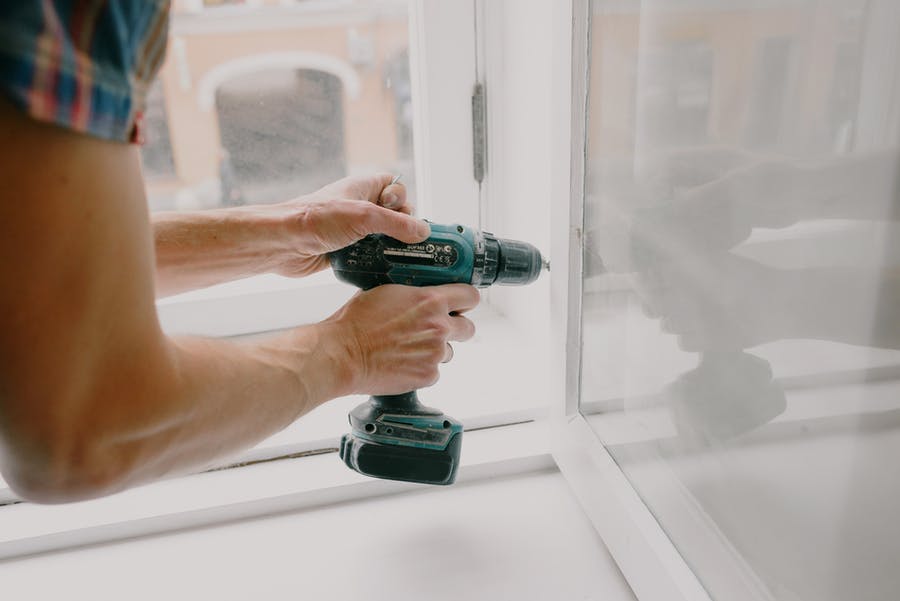Choosing the Right Home Improvement Contractor:
A Comprehensive Guide
When embarking on a home improvement project, selecting the right contractor can significantly impact the outcome of your endeavor. Whether you're remodeling your kitchen, renovating your bathroom, or upgrading your home's exterior, finding a reliable and skilled contractor is paramount. This comprehensive guide outlines essential steps and considerations to help homeowners navigate the process of choosing the best contractor for their project needs.
Choosing the right home improvement contractor is a critical decision that homeowners must make with careful consideration. By following a comprehensive guide that includes verifying licenses, checking references, reviewing portfolios, obtaining multiple quotes, communicating clearly, checking insurance coverage, evaluating contracts, and trusting instincts, homeowners can navigate the process effectively.
MyHomeQuote's mission, vision, and values align with these principles, aiming to simplify the contractor selection process while prioritizing transparency, reliability, and customer satisfaction. The platform's myhomequote.com commitment to connecting homeowners with reputable local professionals underscores its dedication to fostering positive home improvement experiences nationwide.

1. Verify Licenses and Credentials
One of the initial steps in selecting a contractor is verifying their licenses and credentials. Ensure that the contractor holds the necessary licenses to operate in your area. This step not only confirms their legitimacy but also indicates their adherence to local regulations and building codes. Additionally, check if the contractor holds any relevant certifications or memberships in professional organizations. Certifications can demonstrate specialized skills and expertise, such as certifications for handling lead-based paint or specialized training in specific areas of construction.
2. Check References and Reviews
Gathering references and reading reviews from past clients can provide valuable insights into a contractor's reputation and work quality. Request references from the contractor and reach out to previous clients to inquire about their experiences. Ask about the contractor's communication, timeliness, craftsmanship, and overall satisfaction with the completed project. Online platforms like Google, Yelp, and Angie's List also offer reviews and ratings from homeowners who have worked with the contractor. Pay attention to patterns in reviews regarding punctuality, professionalism, and adherence to budgetary constraints.
3. Review Portfolios and Past Projects
Examining a contractor's portfolio and past projects can give you a visual representation of their work quality and capabilities. Look for projects similar in scope and style to your own and assess the attention to detail, design aesthetics, and craftsmanship displayed in their work. A comprehensive portfolio showcases a contractor's range of expertise and may include before-and-after photos, project timelines, and client testimonials.
4. Obtain Multiple Quotes
Obtaining multiple quotes from different contractors allows you to compare pricing, services offered, and project timelines. Request detailed quotes that itemize costs for materials, labor, permits, and any additional fees. Avoid selecting a contractor solely based on the lowest bid, as quality and reliability should also be considered. Evaluate the value offered by each contractor, considering factors such as experience, reputation, warranty coverage, and communication practices.
5. Communicate Clearly and Establish Expectations
Effective communication is key to a successful contractor-client relationship. Clearly communicate your project requirements, expectations, budget constraints, and timeline to the contractor. Discuss any specific preferences or customization options you have in mind. Establishing clear lines of communication from the outset helps ensure that both parties are aligned regarding project goals, scope, and deliverables.
6. Check Insurance Coverage
Before hiring a contractor, verify that they carry adequate insurance coverage, including general liability insurance and workers' compensation insurance. Request proof of insurance and ensure that policies are current and sufficient to cover any potential accidents, injuries, or property damage that may occur during the project. Insurance coverage protects you as the homeowner from financial liabilities related to unforeseen incidents on the job site.
7. Evaluate Contracts Thoroughly
Carefully review and evaluate the terms and conditions outlined in the contract before signing. Ensure that all agreements, warranties, payment schedules, and project milestones are clearly documented in writing. Seek clarification on any ambiguous clauses and discuss any changes or additions to the contract before work begins. A well-defined contract helps prevent misunderstandings and disputes during the course of the project.
8. Trust Your Instincts
Rely on your intuition when choosing a contractor for your home improvement project. If you sense any red flags or have doubts about the contractor's reliability or professionalism, it's wise to explore alternative options. Building a positive rapport and mutual trust with your chosen contractor is crucial for ensuring a successful and smooth home improvement journey devoid of unnecessary stress.
In Conclusion
Choosing the right home improvement contractor requires thorough research, diligent evaluation, and clear communication. By following these essential steps and considerations, homeowners can make informed decisions and select a contractor who meets their project needs, budgetary constraints, and quality standards. A well-chosen contractor can turn your home improvement vision into reality while providing peace of mind throughout the renovation process.
Checklist for Choosing a Home Improvement Contractor
| Steps | Details and Actions |
|---|---|
| Verify Licenses and Credentials | Check contractor's licenses and certifications. |
| Check References and Reviews | Contact previous clients and read online reviews. |
| Review Portfolios and Past Projects | Examine examples of previous work. |
| Obtain Multiple Quotes | Compare pricing and services from different contractors. |
| Communicate Clearly and Establish Expectations | Discuss project details and expectations. |
| Check Insurance Coverage | Verify contractor's insurance policies. |
| Evaluate Contracts Thoroughly | Review and understand all terms and conditions. |
| Trust Your Instincts | Follow your intuition when choosing a contractor. |